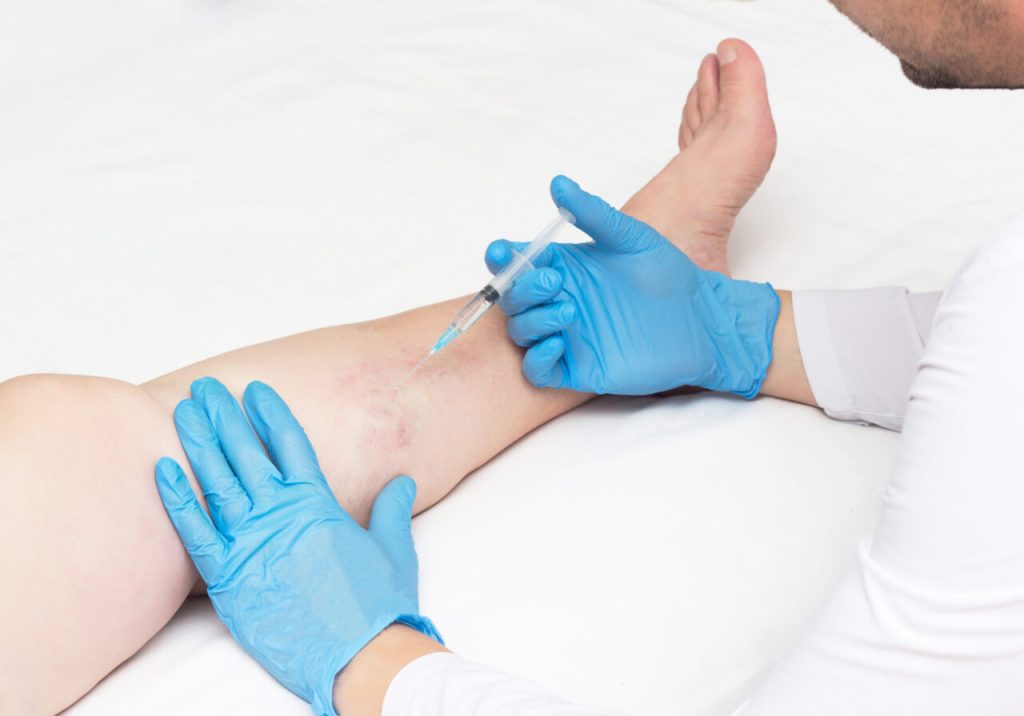
Varicose veins, those twisted and enlarged veins that often appear on the legs, can be more than just a cosmetic concern. They can cause discomfort, pain, and even lead to more serious health issues if left untreated. One common question that individuals dealing with varicose veins often ask is, “Are varicose veins covered by insurance?” Additionally, understanding what kind of doctor treats varicose veins is crucial for seeking appropriate medical care. In this comprehensive guide, we will explore the answers to these questions and shed light on the importance of addressing varicose veins with the right medical professionals.
The coverage of varicose vein treatment by insurance largely depends on the medical necessity of the procedure. While varicose veins are often seen as a cosmetic issue, they can also be a symptom of an underlying venous disease. In such cases, insurance providers may cover the cost of treatment.
Varicose veins can cause symptoms such as pain, swelling, heaviness, and even skin changes. When these symptoms are more than just a cosmetic concern and impact the patient’s overall health, insurance companies are more likely to consider covering the expenses related to diagnosis and treatment.
To determine coverage, it’s essential to consult with your insurance provider and understand their specific policies regarding varicose vein treatments. Some insurers may require documentation from a healthcare professional, demonstrating the medical necessity of the procedure.
The medical professionals who specialize in the diagnosis and treatment of varicose veins are known as vascular surgeons or phlebologists. Vascular surgeons are physicians who focus on the circulatory system, including veins and arteries, while phlebologists are specifically trained to treat vein disorders.
When seeking treatment for varicose veins, it is advisable to start with a visit to a primary care physician. They can evaluate the severity of the condition and may refer you to a specialist if necessary. In some cases, insurance providers may require a referral from a primary care physician for coverage of specialist consultations and treatments.
Vascular surgeons play a crucial role in the comprehensive management of varicose veins. They are skilled in both traditional and minimally invasive procedures aimed at addressing venous issues. One common procedure performed by vascular surgeons is endovenous laser treatment (EVLT), a minimally invasive method that uses laser energy to close off faulty veins.
The advantage of consulting a vascular surgeon is their expertise in surgical interventions if the condition requires it. Surgical procedures may include vein stripping or ligation, which involve removing or tying off the affected veins. Vascular surgeons can determine the most suitable treatment plan based on the patient’s individual case and overall health.
Phlebologists, on the other hand, specialize specifically in the diagnosis and treatment of vein disorders. They often use non-surgical interventions such as sclerotherapy, a procedure that involves injecting a solution into the affected veins to close them off. Phlebologists are also well-versed in the use of compression therapy and other conservative measures to manage varicose veins.
One notable advantage of consulting a phlebologist is their in-depth knowledge of vein disorders, allowing for a more targeted and specialized approach to treatment. They stay abreast of the latest advancements in vein care and can provide patients with the most current and effective solutions.
Before seeking the expertise of a vascular surgeon or phlebologist, individuals with varicose veins should schedule a visit with their primary care physician. Primary care physicians can assess the severity of the condition, provide initial recommendations, and determine whether a referral to a specialist is necessary.
During the initial consultation, patients should communicate their symptoms and any concerns they have about varicose veins. This information will assist the primary care physician in making an informed decision about the appropriate course of action, whether it involves conservative measures, diagnostic tests, or a referral to a specialist.
Understanding your insurance coverage is crucial when considering treatment for varicose veins. Start by reviewing your insurance policy or contacting your insurance provider to inquire about their specific policies related to vein disorders. Some insurers may require pre-authorization for certain procedures or documentation from a healthcare professional demonstrating the medical necessity of the treatment.
If a referral to a specialist is recommended by your primary care physician, it is essential to follow the proper channels outlined by your insurance provider. This may involve obtaining a referral authorization before scheduling an appointment with a vascular surgeon or phlebologist.
In conclusion, addressing varicose veins involves not only understanding the medical aspects of the condition but also navigating the complexities of insurance coverage. The key is to take a proactive approach, starting with a consultation with a primary care physician. From there, the appropriate specialist, whether a vascular surgeon or phlebologist, can be identified and consulted.
The question, “Are varicose veins covered by insurance?” underscores the importance of considering both the medical and financial aspects of treatment. By working closely with healthcare professionals and understanding insurance policies, individuals can take charge of their varicose vein treatment journey. Remember, early intervention can not only alleviate symptoms but also prevent the progression of venous disorders, promoting overall vascular health.